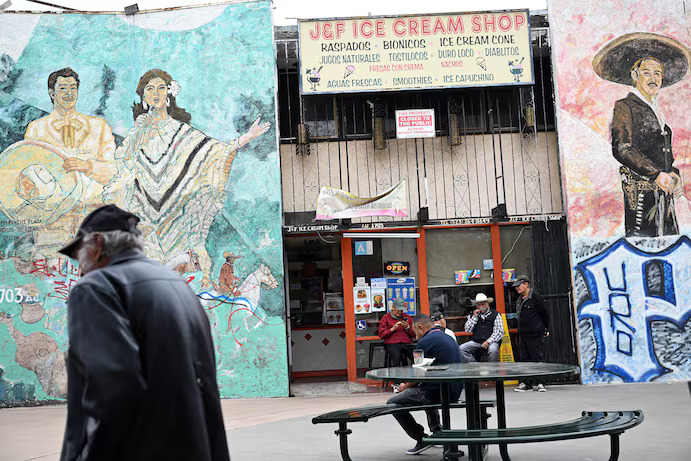President Donald Trump’s recent decision to send National Guard troops to California, claiming they must “liberate” Los Angeles from a so-called “migrant invasion,” has sparked major debate. His comments, echoed by White House Deputy Chief of Staff Stephen Miller, described migration as a force that “unravels” society. However, a closer examination of federal and state data presents a significantly different picture.
While Trump and Miller paint a scene of chaos, immigration numbers in California remain consistent with long-standing trends and show no sign of the massive surge described by the administration. According to the Department of Homeland Security and California’s state data, there is no factual basis for declaring a crisis-level influx of migrants in Los Angeles or the wider state.
The image of invasion clashes with the lived experiences of many in Los Angeles. On Monday, hundreds gathered peacefully at Mariachi Plaza in Boyle Heights, not in protest of immigration but to celebrate community and culture. Many local leaders and residents have pushed back against the rhetoric, saying it only stirs fear and distracts from the real issues.
Stephen Miller’s statement that migration “unravels” society ignores the numerous studies and real-life examples showing immigrants’ positive impact on California’s economy and culture. In fact, immigrants make up a significant portion of the state’s workforce and contribute billions annually through taxes, entrepreneurship, and consumer spending.
Critics argue that using words like “invasion” promotes xenophobia and distorts the realities on the ground. Commenters across news platforms have pointed out that many migrants seek legal pathways to a better life and that the overwhelming majority are not linked to crime or instability.
So, is there really a migrant invasion in California? The data says no. Government statistics show a steady flow of migrants that aligns with historical patterns. No spike or emergency is demanding military intervention.
In reality, the claim of an invasion seems more political than factual. As election campaigns heat up, some experts suggest that exaggerated immigration fears may be used to rally specific voter bases. However, data-driven evidence and the voices of Californians present a more nuanced and stable reality.
In the end, rather than troops, what cities like Los Angeles might benefit from is investment in community services, legal immigration support, and real dialogue, not divisive labels.

